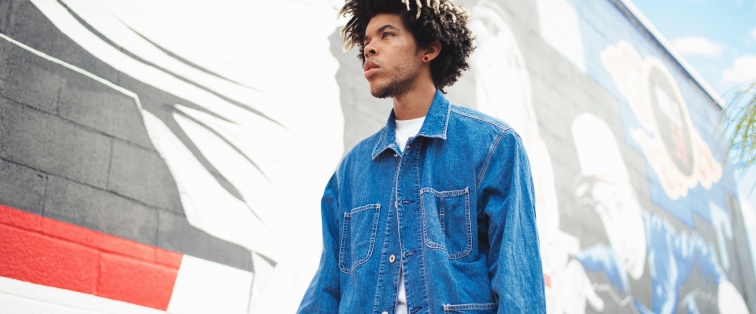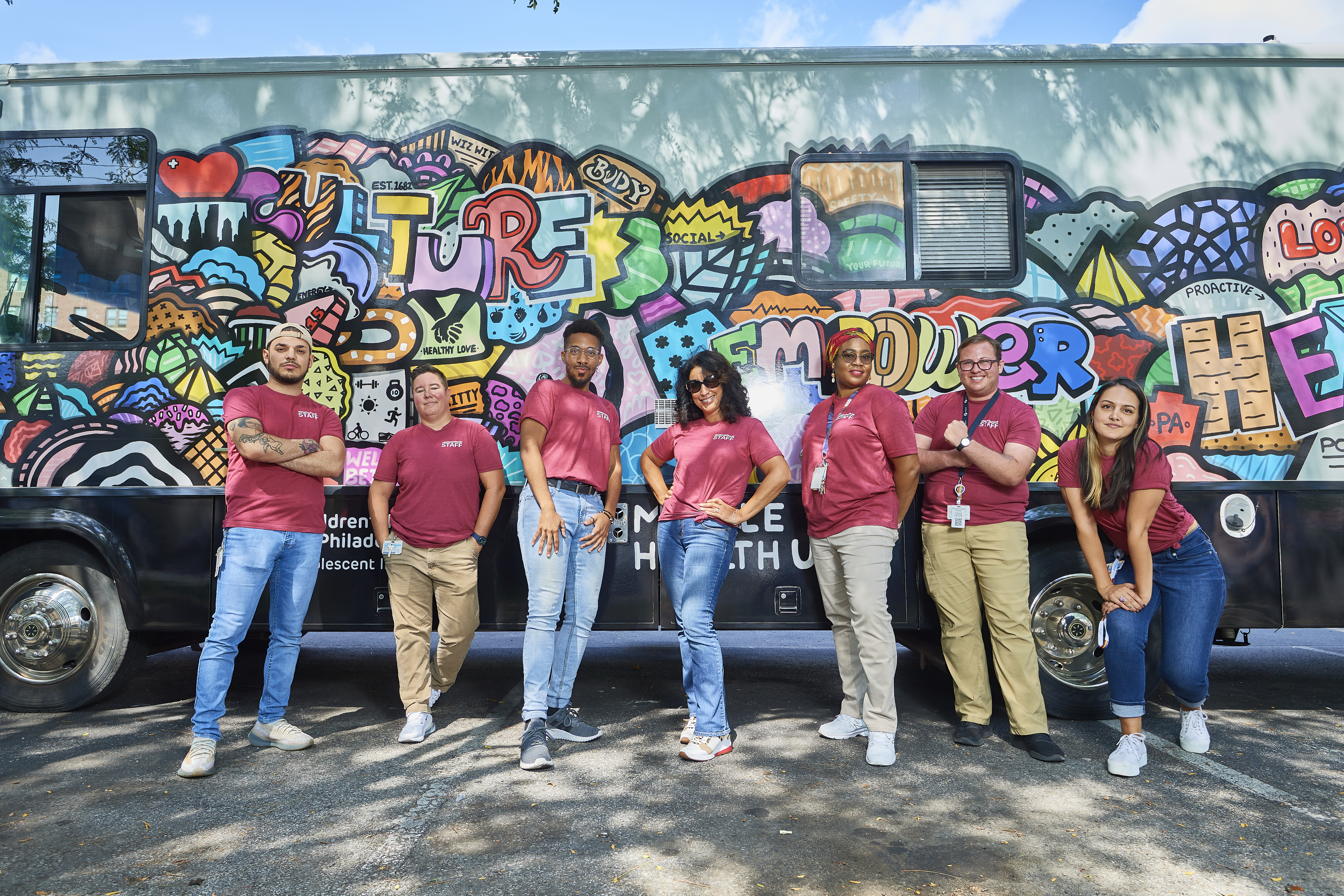Reflecting on World AIDS Day 2021: What Happens When Pandemics Collide?

World AIDS Day, which we recently recognized, is a day spent reflecting upon the impact HIV has had on us all. Personally, we remember those we’ve lost, and celebrate those who are living and thriving with HIV. Professionally, we acknowledge the hard work we’ve done and look forward to the work ahead of us to end HIV.
Here in Philadelphia, youth ages 13-24 accounted for 25.6% of new HIV infections in 2018, according to a surveillance report, and HIV infection rates are disproportionately high among African American young men who have sex with men and transgender youth who have sex with men. Youth present a unique combination of low risk perception, low testing rates, low utilization of condoms and very high rates of sexually transmitted infections (STIs). We also know that more than half of youth ages 13-24 living with HIV are unaware of their status. This is true for all youth, but especially for LGBTQ+ youth, for whom the stigma of seeking and receiving HIV testing, care, or prevention can be overwhelming and a barrier to seeking care.
In 2020 and 2021, as the COVID-19 pandemic ravaged communities across the world, those of us engaged in HIV and youth community health care witnessed all too familiar barriers reemerge—trust and access. Communities that were impacted most by COVID-19 lacked testing sites, doctors’ offices, and access to clear and transparent information. This parallels the typical experience of youth seeking HIV testing services, pre-exposure prophylaxis (PrEP) care and sexual health education. In this piece, we’ll discuss the challenges youth face in accessing care and services and the very real traumas of intergenerational medical mistrust that exists in communities of color.
Access Challenges for HIV Testing and Education
Throughout Philadelphia, there is a lack of youth- focused HIV testing and health care sites, especially in ZIP codes with the highest prevalence. In recent years, the focus on HIV testing shifted from community efforts to routine HIV screening initiatives within health care settings. While incredibly important, this transition removed an opportunity for community engagement and reduced testing locations outside of health care settings. Communities less likely to engage in medical care, including people of color, adolescents, and LGBTQ+ individuals, are also less likely to seek care without a known connection to services or staff. Encouraging community engagement helps build trust with young people seeking health care, dispels myths, and opens the door to health care services and resources. Providing HIV testing and education in community settings offers a link to the health care system that youth might not otherwise experience, particularly for those who do not have a primary care provider and find the health care system overwhelming to navigate.
Social determinants of health—such as poverty, housing insecurity, incarceration and discrimination based on race, sexual orientation and gender—also prevent youth from accessing HIV-related services. These disparities are compounded by stigma and discrimination youth may experience at interpersonal, familial and community levels. Designing programs that model health equity and provide services driven by community input can decrease stigma, resulting in accessible and equitable programming for the adolescent population.
Addressing Medical Mistrust
Similar to skepticism around COVID-19 vaccines, when PrEP first came out, many young people of color were deeply suspicious of this new biomedical prevention tool. Medical mistrust has certainly taken center-stage amidst the COVID-19 pandemic, but it has been embedded within our communities for centuries, creating generational trauma and mistrust. This is most common in communities of color, specifically Black communities, that have experienced horrendous mistreatment at the hands of medical research.
This trauma and mistrust are taught to future generations as a way to be mindful of trusting medical providers that might not have their best interests at heart. Young adults coming of age to manage their own health care are at a pivotal point to make health decisions for themselves and challenge the mistrust they were taught. But this level of intergenerational trauma and mistrust can only be addressed by transparency, the understanding of historical wrongs and clear, consistent communication regarding health issues. Intergenerational medical mistrust, the impact of racism on institutions and infrastructure, and culturally incompetent education are just a few primary issues that need to be addressed.
Supporting Youth Sexual Health with the Adolescent Initiative
These past two years have highlighted the parallel challenges and inequities with COVID-19, but has it informed our current efforts? For the Adolescent Initiative (AI), it has. The AI Mobile Health Team will hit the road and get out into the community with years of clinical expertise in HIV care, prevention, and education to work with adolescents who experience the highest rates of HIV and STI infection, COVID-19 infections, poverty, homelessness, and discrimination for their sexual orientation, gender identity, race or religion. Our team serves as health navigators for each youth we encounter, offering education, insurance navigation, mental health resources, HIV and PrEP medical services, integrated screenings for HIV and STIs, follow-up testing and adherence support.

Much of the current programming designed for testing and prevention does not allow youth to work closely with a provider, such as a navigator, to receive support with aspects of sexual health and general health care. Our goal is to create a safe space for all adolescents to receive sexual health messages, education, prevention and care in the communities in which they live, and to reduce barriers to health care services.
We know the work continues. Solutions to the problems adolescents face when seeking HIV-related services require innovation, community buy-in and flexibility to find the right approach for the time. We are committed to taking intentional steps to continue to reduce barriers for youth seeking health care services, specifically sexual health services, even when that means re-imagining how—and where—we provide services.
Matty Lehman is the prevention program coordinator within the Adolescent Initiative (AI) at Children’s Hospital of Philadelphia (CHOP), which is an interdisciplinary team that provides and serves youth living with HIV and at risk for acquiring HIV. They have been an AI team member since 2009, providing direct services to adolescents as well as managing the development of prevention programming within the community and hospital.
